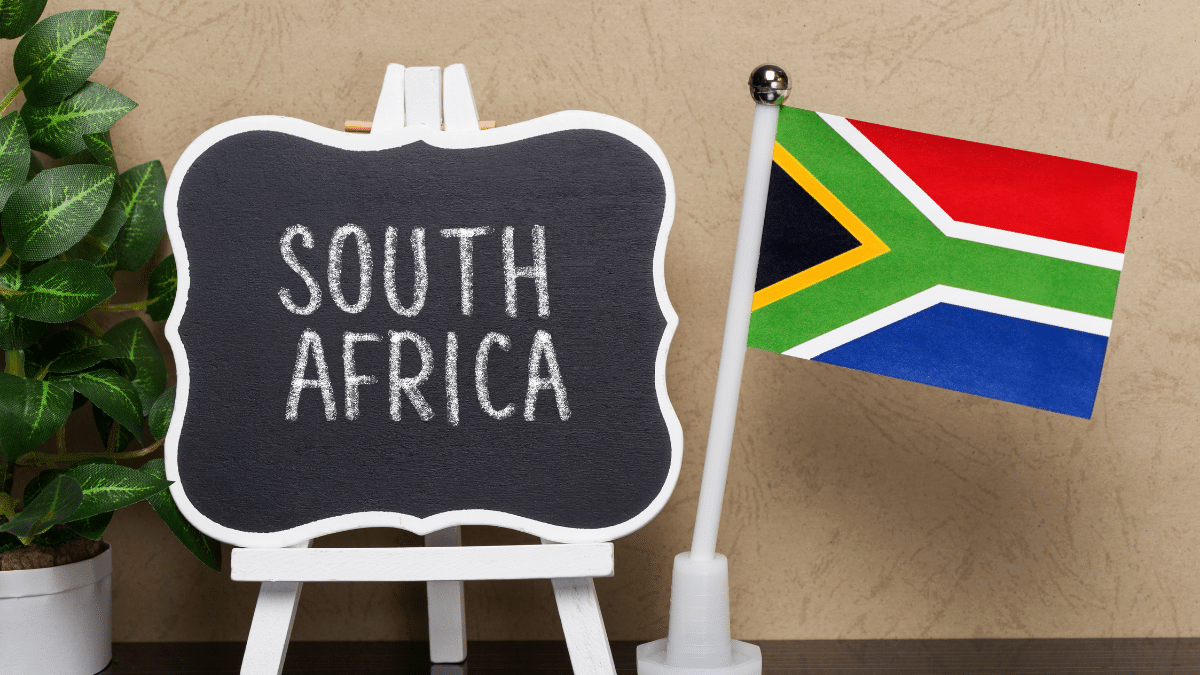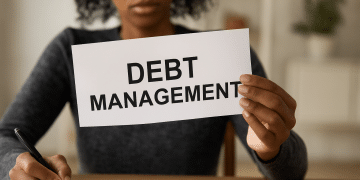Why Financial Literacy in South Africa Matters More Than Ever in 2025

What would your life look like if you truly understood money?
Not only how to get it, but also how to save, expand, and make sensible use of it.
For millions of South Africans, that information vacuum is costing more than just rands.
It is costing future security, peace of mind, and actual possibilities.
Why Financial Literacy in South Africa is not only crucial but also vital for South Africa in 2025.
And it’s not a luxury only for the educated or rich anymore. That is a fundamental life ability. In line with reading. Like running.
Let’s explore why that matters now more than ever—and how we can begin to close the gap.
A Viewpoint of the Financial Reality of South Africa in 2025
Let’s view the terrain before we discuss fixes.
According to FinScope SA, more than half of South African adults are considered to be financially illiterate.
Comparatively to 7% in the United States (World Bank, 2022), the shockingly low national savings rate is hovering at less than 1% of GDP.
Individual debt is growing. More than 70% of disposable income in 2024 will be used for debt payback (National Credit Regulator).
With 45% still shockingly high, financial empowerment for the next generation is absolutely vital.
And despite these numbers, few organisations, businesses, or schools provide any organised financial planning instruction.
That is not only a matter of concern.
The crisis is here.
Understanding Financial Literacy: More Than Just Budgeting
It’s easy to assume financial literacy is just about budgeting or saving.
But it’s much broader than that.
Financial literacy includes:
- Understanding interest rates and how they work
- Knowing the difference between good and bad debt
- Comparing investment options and risks
- Understanding credit scores and how to protect them
- Making informed insurance and tax decisions
- Planning for retirement and financial emergencies
- It’s about confidence and control.
When people understand money, they don’t fear it.
They use it as a tool to build better futures—for themselves and their families.
Read More: How to Stay Focused During Online Learning?
The Link Between Financial Literacy and Economic Freedom
In a country like South Africa, still recovering from economic inequality, unemployment, and a shrinking middle class, financial literacy is economic power.
Here’s how it plays out:
-
Less debt, more control
Financially literate individuals are more likely to avoid high-interest loans and buy-now-pay-later traps. They ask the right questions and read the fine print.
-
Higher savings rates
People who understand compound interest and emergency planning are more likely to build long-term savings, reducing reliance on social grants or payday loans.
-
Improved entrepreneurship
Small business owners who understand budgeting, cash flow, and funding options are better positioned to scale and survive. They also contribute more to local job creation.
-
Better mental health
Money stress is a leading cause of anxiety and depression. Financial literacy helps people feel in control—even during economic turbulence.
Bottom line?
Improving financial literacy lifts individuals and communities.
It boosts productivity, reduces dependency, and drives inclusive growth.
Why Financial Literacy South Africa Is a National Priority?

Let’s be honest: financial education in South Africa has been under-prioritised for too long.
Most people learn about money from trial and error—or not at all.
But that’s beginning to change.
In 2025, we’re seeing a renewed focus on money management courses, digital banking education, and youth empowerment programs.
Government and NGOs are pushing harder for consumer education.
Fintech apps are gamifying savings.
More employers are offering personal finance workshops.
Still, access remains uneven—and real change depends on systemic effort.
The Role of Schools, Parents, and Technology
If we want to build a financially savvy generation, we must start young.
-
Schools need to teach real-life money skills
This means going beyond economics theory and teaching budgeting, saving, credit, and investment basics.
Some private schools have started financial literacy modules—but they’re the exception, not the rule.
-
Parents must model healthy financial habits
Talking openly about money at home matters. Kids learn more from watching how you spend and save than from any textbook.
-
Apps and digital tools are game-changers
Today’s youth are mobile-first. Platforms like 22seven, Yoco, TymeBank, and Stash are making money education fun, accessible, and local.
And with the rise of money management courses online, there’s no excuse not to learn.
Who Needs Financial Literacy the Most?
Truthfully? Everyone.
But here are a few groups where the impact would be transformational:
-
Young adults and first-time earners
These individuals are one bad financial decision away from years of debt. Teaching them about budgeting, credit, and smart saving from day one can change their life trajectory.
-
Entrepreneurs and small business owners
Many local business closures aren’t due to lack of customers—but poor financial planning. Understanding pricing, taxes, and profit margins is essential.
-
Domestic workers and informal traders
Often unbanked and underserved, this group can benefit massively from simple, community-based financial education.
-
Parents and caregivers
They’re shaping the next generation’s financial habits. When they’re empowered, they pass it on.
Read More: How Live Financial Sessions Help You Make Smarter Investment Choices?
The Role of Financial Institutions and Policymakers

Banks, government, and the private sector can’t sit this one out.
Banks can:
- Offer free community workshops
- Create simplified, multilingual educational resources
- Incentivise learning through savings rewards
Government can:
- Mandate financial literacy in public school curriculum
- Support local NGOs delivering training
- Provide tax breaks for companies offering financial planning education to staff
The private sector can:
- Sponsor investment basics programs
- Partner with fintech startups that build financial literacy tools
- Embed financial education into employee wellness programs!
The Rise of Digital Learning: A 2025 Trend to Watch
Thanks to mobile phones and online platforms, money management courses are now more accessible than ever.
Apps like:
- 22seven – helps users track spending and build budgets
- SmartMoney SA – offers bite-sized lessons on financial topics
- GetSmarter – partners with UCT to offer structured online courses in personal finance and investing
These tools help close the knowledge gap—especially for people outside major cities or without formal education.
In 2025, mobile-first financial education is no longer a trend.
It’s a necessity.
So, Where Do We Begin?
With actionable, practical education—not just theory.
If you’re an individual:
- Take a free online course in investment basics or budgeting
- Download a local budgeting app and track your expenses
- Talk about money with your friends and family—remove the shame
If you’re an employer:
- Offer staff training in financial planning education
- Host monthly “money talks” at work
- Invite a local financial coach to run a workshop
If you’re an educator or parent:
- Teach kids how to save from a young age
- Use real-world examples like grocery shopping to explain budgeting
- Encourage digital literacy alongside financial literacy
Real-Life Impact: Siphiwe’s Story
Siphiwe, a 29-year-old from Mpumalanga, worked as a retail assistant for five years.
He never saved. Never budgeted. Thought investing was “only for rich people” During lockdown, he lost his job—and had zero backup. But instead of giving up, he started small:
Took a free money management course online
Created a simple monthly budget using Google Sheets
Saved R500 a month for six months
Then took a beginner course in investment basics
By 2024, he had built an emergency fund and started a side hustle selling secondhand phones.
In 2025, he now employs two people and offers budgeting workshops to local youth.
His message?
“I thought financial literacy was boring and complicated. But it saved me. And now, I want to help others.”

Conclusion: Why Financial Literacy In South Africa Needs a Movement, Not Just a Message
We’re living in a time of inflation, digital disruption, and economic uncertainty.
But we’re also living in an age of access, learning, and community support. If we want to build a stronger South Africa, we need to make financial literacy South Africa a national movement.
Let’s teach our youth. Empower our workers. Support our entrepreneurs. Because when people understand money, they make better decisions.
And when communities make better financial decisions, everyone wins.
FAQs About Why Financial Literacy in South Africa
1. What is financial literacy, in simple terms?
It’s the ability to understand and manage your money—budgeting, saving, borrowing, investing, and making informed decisions.
2. Where can I learn financial skills for free?
Start with apps like 22seven or websites like SmartMoney SA. Many local banks and non-profits also offer free workshops and online courses.
3. Is financial literacy only for businesspeople or the wealthy?
Not at all. Everyone—students, workers, parents, pensioners—needs to understand money to avoid debt and build stability.
4. How does financial literacy help in daily life?
It helps you manage expenses, save for goals, avoid bad debt, prepare for emergencies, and reduce money-related stress.
5. Why is it more important in 2025?
Economic pressures are rising, the cost of living is high, and financial scams are more common. Good money decisions are now essential for survival and growth.





